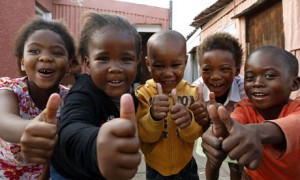The Day of the African Child was created by the Organisation of African Unity (now the African Union). It focuses on the lives of young Africans, and every year it proposes an issue for participants to discuss.

This day commemorates the 1976 march by African schoolchildren to Soweto, South Africa. These children took to the streets to protest about the inferior quality of their education, to demand the right to be educated in their own language and to show their refusal to be taught in Afrikaans, the main language spoken by white people in South Africa. Hundreds of children were slaughtered during this march, which resulted in 15 days of demonstrations. Then, during the demonstrations, the apartheid regime killed more than a hundred people, and more than a thousand people were injured. The Day of the African Child has been celebrated on the 16th June since 1991 to honour the memory of the victims and in remembrance of the protesters’ courage. In 2013, the theme was ‘Eliminating Harmful and Social Cultural Practices Affecting Children: Our Collective Responsibility’. In effect, communities are looking to promote social change and put an end to practices that put at risk the health and lives of hundreds of thousands of children every year. Among the social and cultural practices under consideration are female genital mutilation and accusing children of witchcraft (a pretext for expelling a child from the family). Such practices are deeply rooted in the life of some communities. Certain practices, such as child marriage, “honour killings”, breast ironing and female infanticide are often regarded as acceptable, in spite of their gravity. Dialogue is one of the best solutions for stopping these harmful practices and has already brought about positive change in the area.

